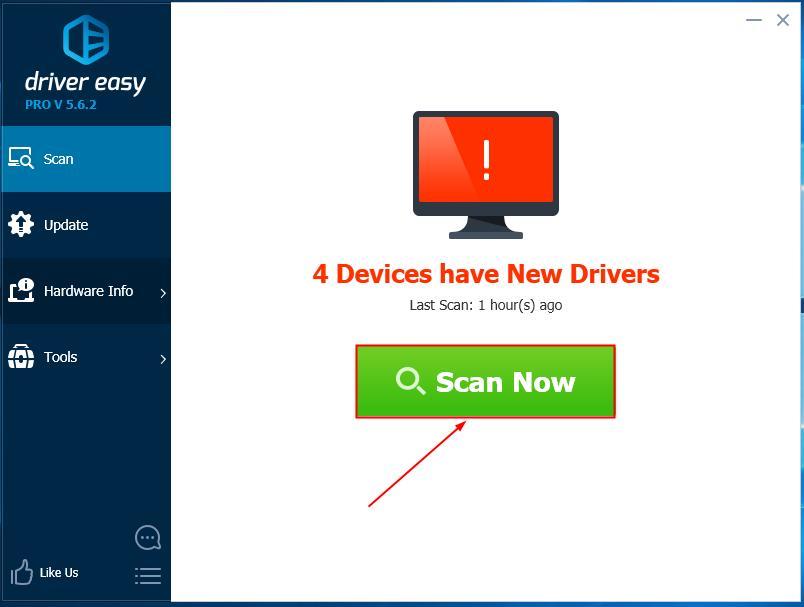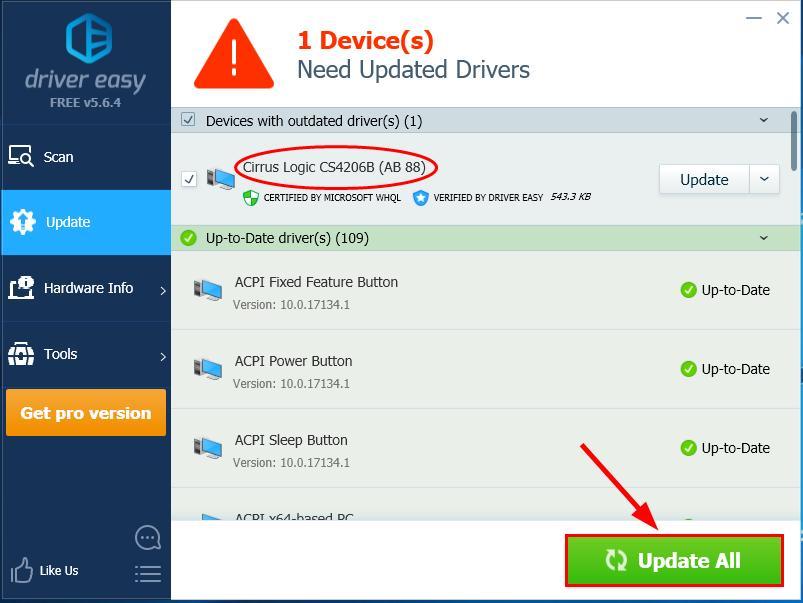An audio driver is a tiny program that enables the operating system to communicate with your audio hardware on your computer. It is essential in keeping the sound card in good performance.
If the audio drivers is outdated, faulty or missing, you might experience no sound, sound cutting out, bugging or crackling issues. So you should always make sure to have the latest audio drivers on your computer.
How to update Microsoft audio driver
Both methods work in Windows 10, 8 and 7. And as the method list suggests, you don’t have to try both. Just decide if you want to do it manually or automatically and take your pick:
- Update my Microsoft audio driver manually
- Update my Microsoft audio driver automatically (Recommended)
Method 1: Update my Microsoft audio driver manually
As it turns out, Microsoft doesn’t provide drivers(except for those built-in generic ones that come in with Windows, which are always subpar). So in order to manually get the right audio update for our computer, you might have to meet at least one of the following requirements:
- Your computer is a branded PC instead of an assembled PC;
- You know exactly what brand and flavor of audio hardware your computer has.
Alright then, let’s get started:
1) Go to your branded PC’s official website or your audio card’s manufacturer’s website (if you know exactly what brand and flavor of audio driver your computer is using).
2) Check out the Support section for driver downloads.
3) Find out and click the right download link for your variant of Windows operating system. Usually a few download options will be listed but you might want to click the first result for the latest driver version.
4) Check the downloaded file:
- If it’s an executable(whose name ends in .exe), then go with steps 5) and 6).
- If it’s zip file(whose name ends in .zip), you might have to unzip it first, then go with 7).
5) Double-click on the file to install.
6) Restart your computer for changes to take effect.
7) After the un-zip, see if there’s an executable(whose name ends in .exe)
If yes, double-click on the .exe file to install. Then restart your computer for changes to take effect.
If no, then check out this link for steps to install your audio driver manually.
Method 2: Update my Microsoft audio driver automatically (Recommended)
If you don’t have the time, patience or computer skills to update your audio drivers manually, you can, instead, do it automatically with Driver Easy.
Driver Easy will automatically recognize your system and find the correct drivers for it. You don’t need to know exactly what system your computer is running, you don’t need to risk downloading and installing the wrong driver, and you don’t need to worry about making a mistake when installing. Driver Easy takes care of it all.
You can update your drivers automatically with either the FREE or the Pro version of Driver Easy. But with the Pro version it takes just 2 clicks (and you get full support and a 30-day money back guarantee):
1) Download and install Driver Easy.
2) Run Driver Easy and click the Scan Now button. Driver Easy will then scan your computer and detect any problem drivers.

3) Click Update All to automatically download and install the correct version of ALL the drivers that are missing or out of date on your system (this requires the Pro version – you’ll be prompted to upgrade when you click Update All).

You can also click Update to do it for free if you like, but it’s partly manual.
4) Restart your computer for the changes to take effect.
That’s it — manually and automatically update your Microsoft HD audio driver. Feel free to drop us a comment if you have any further questions. 🙂





